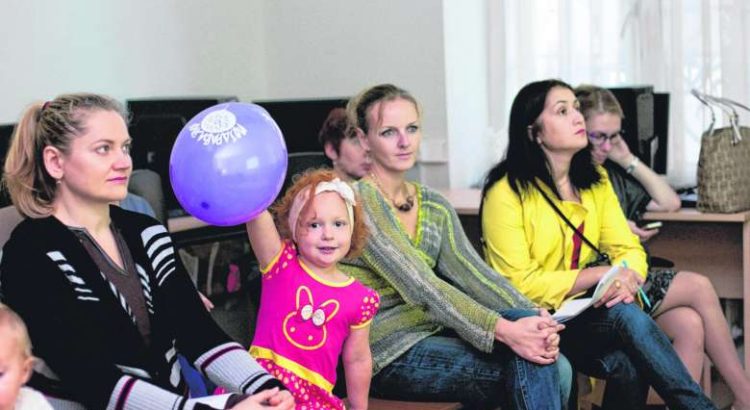Europa/Rusia/Junio 2016/Autor: Natalya Paramonova / Fuente: straitstimes.com
Resumen: Algunos consideran que una madre es un empleado no fiable – ella puede usar los días de enfermedad para cuidar de su hijo, no puede quedarse hasta tarde en el trabajo, pueden necesitar vacaciones y puede ser difícil para ella trabajar durante los fines de semana.
Some consider a mother to be an unreliable employee – she may use sick days to take care of her child, can’t stay late at work, may need a full vacation and it may be difficult for her to work during weekends.
But who pays heed to her child-minding duties and needs?
Moscow resident Olesya Kashaeva decided she had to address the issue. In 2012, she established a charity, Mother Works, which aims to be an ideal employer for mothers.
It aspires to be an employer that is aware of the problems of young mothers, provides them with the opportunity to study and offers them a means to earn an income.
The project took off in 2014, when it received a 1.6-million-rouble (S$33,600) grant from the Institute of Civil Society Issues to implement an educational project.
Today, 10 educational programmes have been established. Young women can access additional professional education, obtain a study grant, find a position or get help preparing for an interview.
The cost of the fund’s educational programmes is lower than others on the market.
In addition to a closed cycle of creating new jobs, third-party companies contact Mother Works in their search for qualified candidates.
The project currently employs eight people for an average salary of 50,000 roubles.
In August 2014, an affiliated project – the workshop, Mothers Themselves – was launched.
This is a clothing business and it aims to contribute to the Mother Works project by selling the items which mothers sew.
Still, reaching this far has not been easy.
The initial capital for the project, for instance, came from a concessional loan for a one-year period.
This helped the project team to lease premises and it paid a salary to the employees for three months, assuming that the project would start to pay for itself after this time. But this did not happen.
The problem: the team focused initially on taking care of women in difficult circumstances who needed income fast.
To do so, it tried to make children’s clothes and other complex items, but soon discovered that there were no professional seamstresses among them. As a result, materials were bought but nothing was made or sold.
Ms Kashaeva negotiated an extension for the loan and, after two years of experimentation, the group now produces cotton bags for large corporate clients.
While still unprofitable, Ms Kashaeva hopes to turn the organisation around soon.
Today, more than 70 per cent of young women who approached Mother Works consider that the project has improved the quality of their lives and given them a stable income.
Around 45 per cent of the mothers who sought help with setting up a business have actually launched their businesses and now create additional jobs.
The fund has expanded to 64 regions in Russia and has started to receive franchise requests. The sale of franchises could become an additional source of revenue for the project.
Fuente de la noticia: http://www.straitstimes.com/world/europe/3-giving-mums-better-working-conditions
Fuente de la imagen: http://www.straitstimes.com/sites/default/files/styles/article_pictrure_780x520_/public/articles/2016/06/25/ST_20160625_KYIMPACT5_2377800.jpg?itok=GSh-5yOA







 Users Today : 112
Users Today : 112 Total Users : 35459707
Total Users : 35459707 Views Today : 199
Views Today : 199 Total views : 3418171
Total views : 3418171